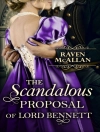In ‘Crusoe in New York, and Other Tales, ‘ Edward Everett Hale weaves a tapestry of ingenuity and resilience through a series of interconnected narratives that reflect on the complexities of urban life in post-Civil War America. With a blend of realism and allegory, Hale draws inspiration from the classic tale of Robinson Crusoe, translating the themes of survival and self-discovery into the bustling streets of New York City. His innovative use of characterization and dialogue creates a vivid portrayal of individuals grappling with social and personal challenges, which highlights the broader human experience in an ever-evolving society. Hale, a prominent figure in 19th-century American literature and an advocate for social reform, crafted this work against the backdrop of his deep commitment to progressive causes such as abolitionism and education. His background as both a writer and a Unitarian minister profoundly influenced his writing, as he sought to inspire moral and ethical reflection among readers. This work exemplifies Hale’s belief in the power of individuals to effect change in their lives and communities, appealing to the American ideal of self-reliance. Readers seeking an engaging and thought-provoking exploration of human resilience will find ‘Crusoe in New York, and Other Tales’ both enlightening and enjoyable. Hale’s mastery in blending societal critique with imaginative storytelling invites modern audiences to reflect on the enduring challenges of identity and belonging. This collection not only entertains but also serves as a timeless commentary on the strength of the human spirit.
Yazar hakkında
Edward Everett Hale (1822-1909) was a prominent American author and Unitarian clergyman known for his contributions to nineteenth-century American literature and social reform movements. Born in Boston, Massachusetts, Hale descended from a strong lineage of historians and writers, and his literary talents materialized early in life. He graduated from Boston Latin School and later attended Harvard College, where he was steeped in classical literature and began crafting his writing style. Hale’s literary style often combined elements of realism and romanticism with a strong moralistic tone and an emphasis on individual responsibility, as seen in works like ‘Crusoe in New York, and other tales’ (1888). This narrative, along with his best-known short story ‘The Man Without a Country’ (1863), showcases Hale’s capacity to fuse engaging storytelling with poignant thematic concerns, such as patriotism and personal redemption. Throughout his career, Hale’s prolific output included novels, short stories, and essays that frequently addressed social issues of the day, such as slavery and the American Civil War, ever aligning with his clerical vocation by advocating for societal improvement through both scripture and the written word. His works left a significant mark on American letters and continue to be studied for their narrative craft and cultural impact.












